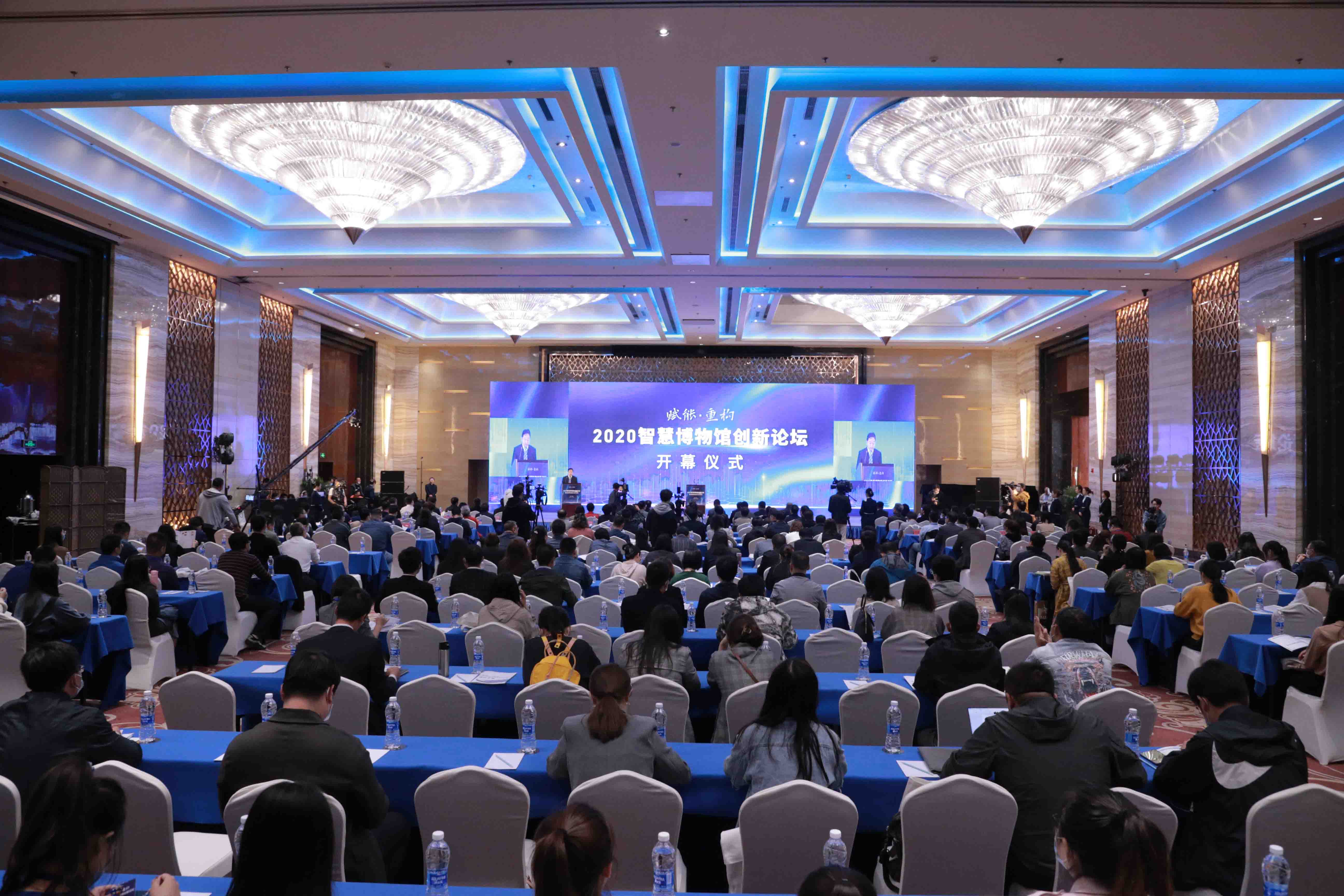You are here: News >
2020 Smart Museum Innovation Forum held in Changchun
- China.org.cn
To promote the use of advanced technology to strengthen cultural relic protection and cultural heritage inheritance, and to boost the innovative development of cultural and museum undertakings, the 2020 Smart Museum Innovation Forum opened in Changchun on September 21.

With guidance from the Jilin Provincial Department of Culture and Tourism (Jilin Provincial Cultural Relics Bureau) and the Publicity Department of the CPC Changchun City Committee, the event was sponsored by the Museum Digitalization Committee of the Chinese Museums Association, the Jilin Provincial Museums Association, the Administrative Committee of the Changchun Jingyue High-tech Industrial Development Zone, and the Changchun Bureau of Culture, Radio, Television and Tourism (Changchun Cultural Relics Bureau), and organized by the Museum of the Imperial Palace of Manchu State, and the Smart Museum Joint Laboratory.
Following the principle of innovation, truth-seeking, and collaboration, the event aimed to showcase and promote exchanges on the fruitful outcomes of smart museum builders nationwide exploring new operational models for museums in accordance with the new requirements for technological innovation and in the face of the COVID-19 challenges.

More than 240 officials, experts and representatives from 115 museums, research institutes and cultural and museum tech businesses across the country participated in the forum.
Luo Jing, director of the Department of Museums and Social Cultural Relics of the National Cultural Heritage Administration, Hu Jiang, chairman of the Museum Digitalization Committee of the Chinese Museums Association, Yang Andi, head of the Jilin Provincial Department of Culture and Tourism, and Zhao Ming, head of the Publicity Department of the CPC Changchun City Committee, addressed the opening ceremony.

The opening ceremony also saw the inauguration of China's first Smart Museum Joint Laboratory by six units, including the Museum of the Imperial Palace of Manchu State, the School of Archaeology of Jilin University, and the Shanghai Advanced Research Institute of the Chinese Academy of Sciences, to implement the spirit of the National Cultural Relics Administration's document on accelerating the construction of research bases for the cultural and museum industry, build a cross-industry, cross-profession and cross-institution platform for collaborative innovation and further make the core businesses of museums intelligent and transform their operation.
In addition, the Palace Museum and the Museum of the Imperial Palace of the Manchu State signed an agreement for strategic cooperation at the opening ceremony. According to the agreement, a large number of the Palace Museum's precious cultural relics related to Puyi, the last emperor of the Qing Dynasty, will be exhibited in the Museum of the Imperial Palace of the Manchu State in the future.
Luo Jing, Yan Hongbin, deputy curator of the Palace Museum, and Wang Zhiqiang, curator of the Museum of the Imperial Palace of the Manchu State, delivered keynote speeches at the forum, titled "Theory and Practice of Smart Museums", "The Construction and Development of Digital Palace Museum", and "Smart Museum 2.0 Operational Transformation" respectively.
Chen Zhuo, curator of the Tianjin Museum, Jin Yilin, deputy head of the Institute of Modern History of the Chinese Academy of Social Sciences, and Huang Xianfeng, professor of Wuhan University, gave thematic presentations on“In-depth Digital Transformation of Museums", "The Construction of a Database for the Literature of the Chinese People's War of Resistance against Japanese Aggression and a Digital Humanities Reading Platform", and"New Surveying, Mapping and Remote Sensing Technologies and Digital Protection of Cultural Relics" respectively.
The forum also featured three salons where representatives of major museums, research institutes, and cultural and museum tech businesses conducted in-depth exchanges on the pain points and difficulties of smart museum construction and their respective experiences. They also reached many consensuses on how to promote the innovative development of museums in the future.